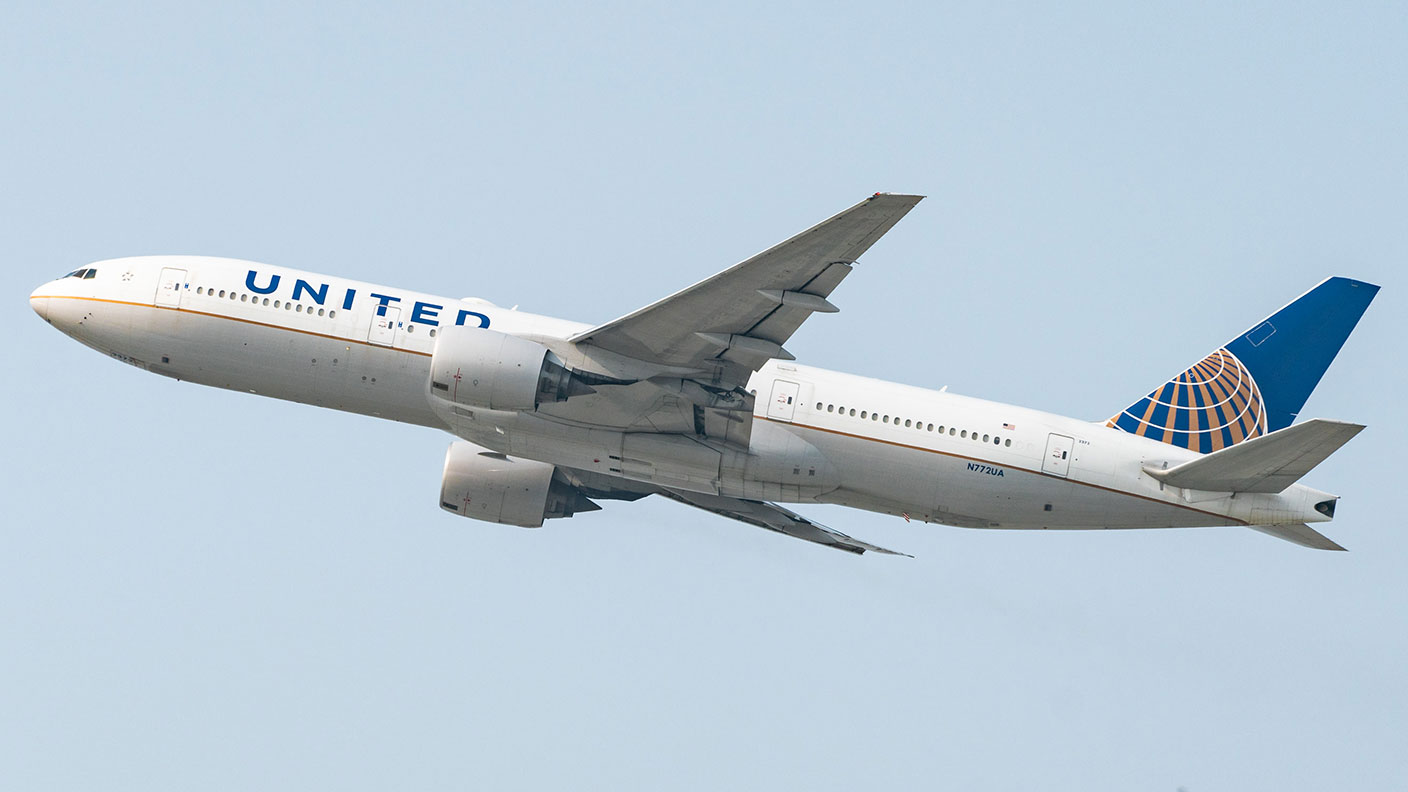Engine failure brings more turbulence for Boeing
Boeing is facing more trouble after one of its 777 aircraft was forced to make an emergency landing when an engine burst into flames.


Get the latest financial news, insights and expert analysis from our award-winning MoneyWeek team, to help you understand what really matters when it comes to your finances.
You are now subscribed
Your newsletter sign-up was successful
Want to add more newsletters?

Twice daily
MoneyWeek
Get the latest financial news, insights and expert analysis from our award-winning MoneyWeek team, to help you understand what really matters when it comes to your finances.

Four times a week
Look After My Bills
Sign up to our free money-saving newsletter, filled with the latest news and expert advice to help you find the best tips and deals for managing your bills. Start saving today!
Only a few weeks after the 737 MAX jet was finally cleared to resume flying after an hiatus of almost two years, prompted by safety concerns, Boeing is facing another “public-relations nightmare”, says Alan Tovey in The Daily Telegraph. The latest incident comes after one of its Boeing 777 jets was forced to make an emergency landing when an engine burst into flames, leading to “debris being scattered far and wide on the ground”. Regulators have insisted that all 128 of the 777s with the type of engine that failed be temporarily grounded and inspected.
Don’t panic, says Jon Sindreu in The Wall Street Journal. While this is “more unwelcome publicity” for an “already battered US aerospace industry”, it isn’t “another 737 MAX debacle”. The problem is likely to affect “only a small subset of the global fleet”. Only 8.3% of Boeing 777s use the engine in question, which is made by Pratt & Whitney (part of Raytheon). And the affected 777s are the kind of “big, old jets” that airlines have kept in storage in the pandemic, with less than half of them in use.
While the latest problems are unlikely to prove a threat to Boeing’s survival, they are still a “distraction” at a time when the sector is being “crushed” by Covid-19, says Lauren Silva Laughlin on Breakingviews.
MoneyWeek
Subscribe to MoneyWeek today and get your first six magazine issues absolutely FREE

Sign up to Money Morning
Don't miss the latest investment and personal finances news, market analysis, plus money-saving tips with our free twice-daily newsletter
Don't miss the latest investment and personal finances news, market analysis, plus money-saving tips with our free twice-daily newsletter
The problems underline how the attempt to copy General Electric’s focus on short-term financial performance has hampered its long-term prospects. The strategy drove its stock price to new highs under previous CEO Dennis Muilenburg, but these gains have since been wiped out.
Get the latest financial news, insights and expert analysis from our award-winning MoneyWeek team, to help you understand what really matters when it comes to your finances.

-
 Should you buy an active ETF?
Should you buy an active ETF?ETFs are often mischaracterised as passive products, but they can be a convenient way to add active management to your portfolio
-
 Power up your pension before 5 April – easy ways to save before the tax year end
Power up your pension before 5 April – easy ways to save before the tax year endWith the end of the tax year looming, pension savers currently have a window to review and maximise what’s going into their retirement funds – we look at how
-
 Three key winners from the AI boom and beyond
Three key winners from the AI boom and beyondJames Harries of the Trojan Global Income Fund picks three promising stocks that transcend the hype of the AI boom
-
 RTX Corporation is a strong player in a growth market
RTX Corporation is a strong player in a growth marketRTX Corporation’s order backlog means investors can look forward to years of rising profits
-
 Profit from MSCI – the backbone of finance
Profit from MSCI – the backbone of financeAs an index provider, MSCI is a key part of the global financial system. Its shares look cheap
-
 'AI is the real deal – it will change our world in more ways than we can imagine'
'AI is the real deal – it will change our world in more ways than we can imagine'Interview Rob Arnott of Research Affiliates talks to Andrew Van Sickle about the AI bubble, the impact of tariffs on inflation and the outlook for gold and China
-
 Should investors join the rush for venture-capital trusts?
Should investors join the rush for venture-capital trusts?Opinion Investors hoping to buy into venture-capital trusts before the end of the tax year may need to move quickly, says David Prosser
-
 Food and drinks giants seek an image makeover – here's what they're doing
Food and drinks giants seek an image makeover – here's what they're doingThe global food and drink industry is having to change pace to retain its famous appeal for defensive investors. Who will be the winners?
-
 Barings Emerging Europe trust bounces back from Russia woes
Barings Emerging Europe trust bounces back from Russia woesBarings Emerging Europe trust has added the Middle East and Africa to its mandate, delivering a strong recovery, says Max King
-
 How a dovish Federal Reserve could affect you
How a dovish Federal Reserve could affect youTrump’s pick for the US Federal Reserve is not so much of a yes-man as his rival, but interest rates will still come down quickly, says Cris Sholto Heaton